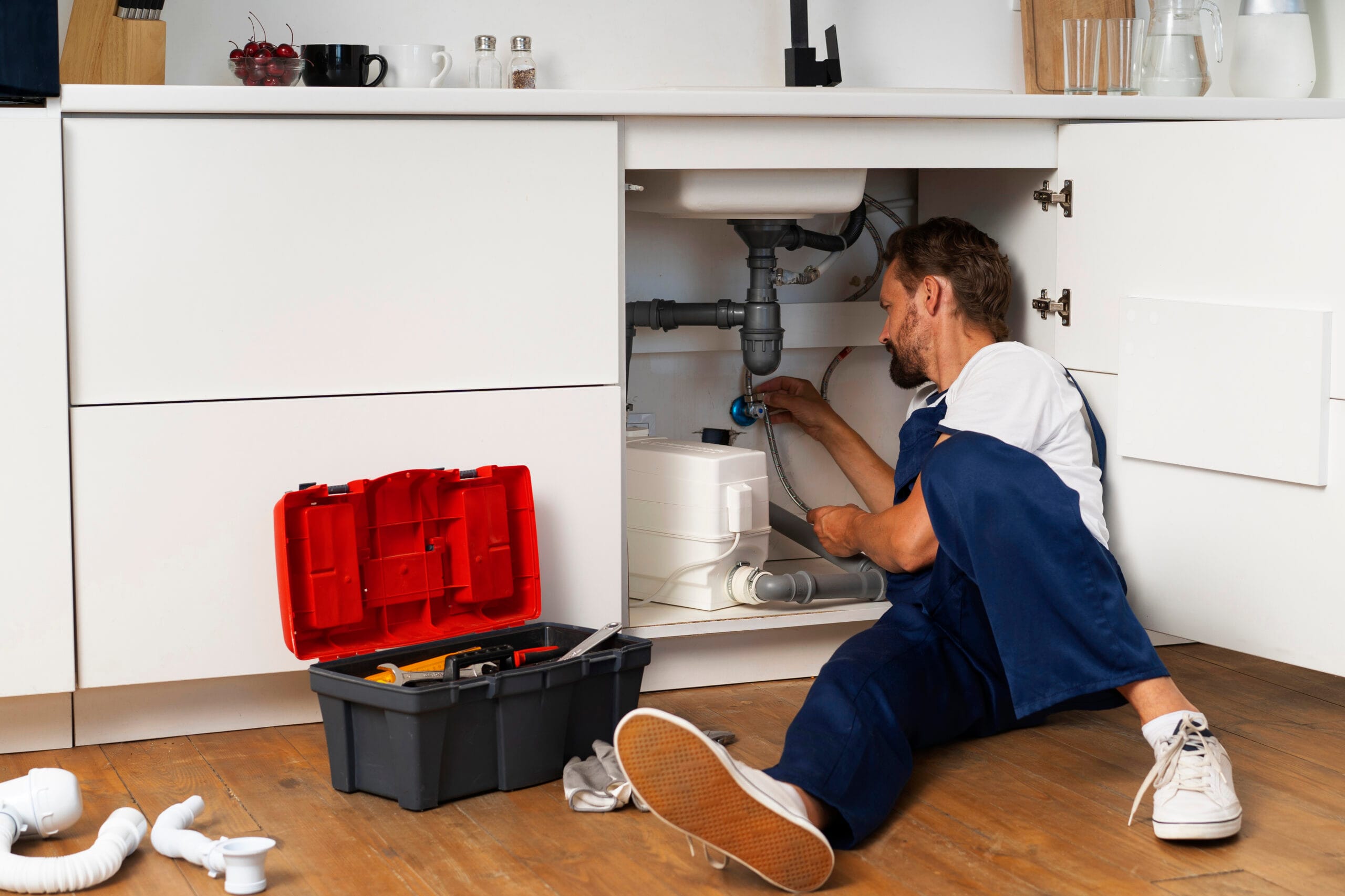When you have children, it becomes a parent’s responsibility to ensure the home is clean and safe for the children. But did you know that pests can breach the comfort of your residence with your family and endanger their lives? With ants crawling on your kitchen counter or mice running around the attic, pests are a lot more than an inconvenience. They can spread illnesses, cause health sensitivity, and can also cause harm to property. Therefore, pest control is essential for maintaining a cleaner and healthier environment in homes and other places.
In this guide, we’ll also look at important pest control tips for parents, different kinds of household pests, and how to keep your home free of pests. Let’s dive in!
Why Pest Prevention is Crucial for Parents
A pest is not just an undesirable intruder but can pose health risks to your family. If you have young children, the need to eliminate pests becomes even more apparent. Children are at higher risk of diseases caused by pests like rashes, asthma, allergies, and food poisoning.
Further, pests such as rodents, cockroaches, and ants cause the spread of diseases by depositing dangerous pathogens on food and surfaces. The exclusion of pests making their way into your home lowers these risks and, at the same time, provides a better play and growing environment for your children.
Common Household Pests to Watch Out For
It is essential to know which pests are likely to infest your house before you can control them. Here are some of the most common pests parents should be aware of:
- Ants: These small critters can arrive in droves, and the problem worsens in spring or summer. They sometimes look for food and water sources; the kitchen is a go-to area for these pests.
- Cockroaches: Roaches are associated with diseases caused by Salmonella and E. Coli bacteria. Kitchens and bathrooms are preferred areas for mold development because they prefer warm, humid weather.
- Rodents (Mice and Rats): Rats and mice are creatures that would harm your house significantly since they would tear wires, insulation, and even walls. They also contaminated water reserves by their droppings, and waterborne diseases were rampant.
- Bed Bugs: Small nuisance insects are characterized by the capability of finding tiny spaces in residential areas to create homes. These are the ones that feed on human blood and can cause itching, discomfort, and allergies.
- Termites: Termites have a unique speciality in consuming wood, which may cost you a lot of money to repair the damaged parts in your house. It is played, for the most part, very quietly and often remains hidden until heavy losses have been incurred.
- Spiders: Although not all are poisonous, some are extremely dangerous, such as the black widow spider. Such apparently innocuous creatures as spiders make children anxious.
Practical Pest Prevention Tips for Parents
Now that we have understood the types of pests to expect let’s discuss some pest control measures that every parent should practice to ensure their home is free from pests.
1. Seal Entry Points
One of the most essential procedures that can be taken to avoid pest invasions is to check for and fill any cracks. Other pests like ants and rodents can find their way into the house through cracks in the wall or floor, whereas pests such as cockroaches and termites can enter through gaps in walls or doors.
How to Seal Entry Points:
- Conduct a weather strip or seal around doors and windows.
- Apply caulk or expandable foam around pipes, vents, and electrical outlets to seal gaps.
- Cover screens on steel windows or doors to avoid flying or crawling bugs from entering through the screens.
2. Keep Food and Garbage Secure
Any pests, including ants, cockroaches, and rodents, are attracted to food. Even if food crumbs are left in your kitchen, it is crucial to ensure that these foods and leftovers are stored properly, as well as the surfaces available for these pests to locate.
Food Storage Tips:
- Store all food in tightly sealed receptacles and feed pets indoors.
- Avoid putting food out for another day. Crumbs and spills should be wiped or vacuumed as soon as they are noticed.
- Clear garbage containers often and use bags with a good lid.
3. Maintain Cleanliness
Debris attracts rodents, cockroaches, spiders, and other pests; a clean house repels these mischief makers. The flow of people in the kitchen and bathroom makes cleaning a priority for pest control, which should be done daily.
Cleaning Tips:
- Kitchen counters must be cleaned daily to eliminate crumbs and other foods left on those counters.
- Always wipe the floor with a mop to clear any spills and other sticky stains.
- Keep dishes clean and dry. Do not allow such things to accumulate in the sink.
- Clean your pet’s water and feeding bowls regularly.
4. Control Moisture and Water Sources
Some common pests people confront, including cockroaches and rodents, require water to live. Spare or dripping taps worsen the situation since standing water is ideal for pests.
Moisture Control Tips:
- If you have a dripping faucet or dripping pipe, make sure you repair it immediately.
- Use dehumidifiers in places such as the basement or the bathroom if possible.
- Always ensure your house is well drained so that water does not collect around the house.
5. Use Non-Toxic Pest Control Methods
Houses with children should especially avoid using pest control methods that have adverse effects on the children’s health. These pest control chemicals are conventional and toxic to your children and even your pets. Fortunately, many natural and effective remedies are at hand.
Non-Toxic Pest Control Options:
- Some oils, such as peppermint, tea tree, and eucalyptus, can deter ants and spiders from penetrating your house.
- Sealog is a type of mineral-based powder that can help control pests like bed bugs and cockroaches.
- Employ sticky traps for rodents or small insects.
6. Regularly Inspect Your Home
A standard house check should be carried out occasionally to detect early signs of pests before they infest the home. Search for feces or other clues such as gnawings or any area that looks like it has been chewed around your house.
Inspection Tips:
- Check food compartments, rooms, attics, basement, and crawl spaces for pest problem indicators.
- Look for their droppings or nests on the floor along baseboards, under furniture, and inside cabinets.
- Check for stench, especially in obscure places, since it is a sign of pest invasion.
Parenting Tips for Keeping Kids Safe from Pests
In addition to preventing pests, as a parent, you also need to sensitize your children to issues related to pests. Here are some helpful tips:
- Teach Kids to Clean Up: Teach children proper etiquette, such as cleaning up toys, food, and messes. This ensures that the pests do not find food or a place to harbour within your home since children are taught to keep certain places clean.
- Stay Calm Around Bugs: Educate children not to panic when they find insects around them. Also, teach them to inform an adult immediately if they see a spider or ants in the house or maybe in the compound.
- Ensure Safe Play Areas: The environment within which children play within the compound or playground should be clean and free from pests such as mosquitoes, ticks, and ants.
- Use Child-Safe Pest Repellents: Burning citronella candles or light essential oils is recommended in places where children play, such as outdoors. Do not use chemical repellents that are dangerous to the young ones and cause harm to their health.
The Advantages of Pest Prevention
Pest control services for your home have several advantages beyond ensuring the house remains clean. Some of the key benefits include:
- Improved Health: Very few pest diseases, such as allergic and asthmatic incidents, are likely to be associated with low pest incidences. Cockroaches and rodents, for instance, can cause allergies, especially in children. To some extent, Preventing their presence improves your family’s health.
- Reduced Stress: Nobody enjoys the fact that pests have infested them. By taking proactive steps to prevent pests, you can avoid the stress and frustration of dealing with unwanted guests.
- Protect Your Property: Termites, for instance, pose a big threat to the structural integrity of most homes they infest. Preventing them from entering saves you from costly repairs.
- Peace of Mind: It is pleasing for parents to know that their home doesn’t contain pests; thus, there is no need to worry when you can spend time with your family.
Pest control is essential in keeping clean homes, especially for homes with children and infants. By keeping your home free of gaps and cracks, storing food in sealed containers, washing up regularly, and using non-lethal pesticides, you can significantly reduce your exposure to pests. As you can see, keeping your family safe from the harms of these pests does not take much.
When pest control becomes a regular practice in your home, your children’s surroundings become secure. Your home should be a haven for your family, away from the diseases that pests may cause. Therefore, start today and maintain your home free of pests!














